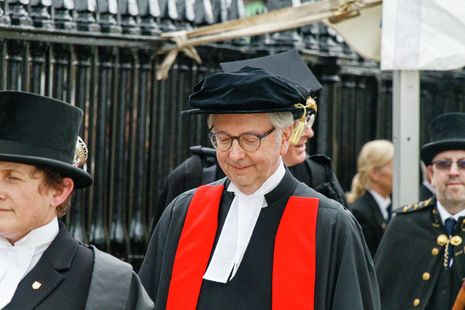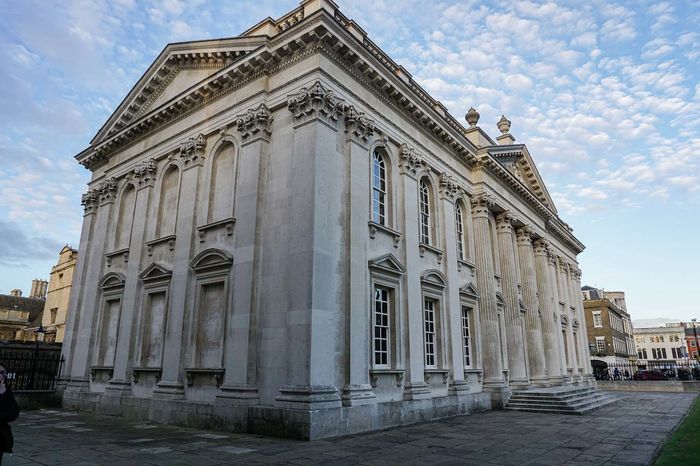Over 18,000 students and alumni call for colleges and the University to relax their admissions policies amid A-level “fiasco”
Tens of thousands of students and alumni from across the University are calling for the unconditional admission of state-educated and disadvantaged offer-holders as the government U-turns on A-Level grades

Students and alumni from more than half of the University’s constituent colleges are calling for the relaxation of their admissions policies as a result of the “fiasco” caused by Ofqual’s standardisation of A-level results.
16 out of Cambridge’s 31 colleges, alongside the University, now face detailed demands laid out in open letters for additional lenience regarding the admission of state-educated and disadvantaged offer-holders.
These calls come as the government U-turned on their A-level results policy with ministers announcing the scrapping of the controversial standardisation model drawn up by Ofqual, the exam regulator, after mass uproar following A-level results day. Instead, A-level and GCSE results will be based on teacher-assessed grades or centre assessed grades.
The U-turn follows days of outcry as 39.1% of predicted results were downgraded. Pupils from disadvantaged backgrounds have been most severely affected by the ‘standardisation’ process used to determine A-Level grades this year, while students from private schools have benefited the most from the controversial system, according to analysis of A-level results.
Ofqual’s standardisation model drew on schools' past performances and led to state comprehensive pupils seeing their grades overwhelmingly downgraded, while exemptions for students in smaller classes meant that teacher predictions were largely preserved at independent schools, many of which increased the proportion of A* and A grades awarded from the previous year.
In response to this, 16 colleges - Clare, Churchill, Emmanuel, Fitzwilliam, Jesus, King’s, Magdalene, Murray Edwards, Newnham, Pembroke, Robinson, Sidney Sussex, St. Catharine’s, St. John’s, Trinity Hall and Queens’ - have received requests from students and alumni to admit offer-holders who have not met the entry requirements for their course, particularly those from state-educated and disadvantaged backgrounds.
These college-specific open letters join demands levied by Cambridge SU’s Class Act Campaign and a number of similar open letters at universities across the country.
The Class Act Campaign request that Cambridge University should “consider applicants from Widening Participation backgrounds on the basis of their predicted or centre-assessed grades”. At the time of writing their letter has collected over 3,600 signatures.
Another open letter from alumni, which calls on the University to honour all offers made to students from the state sector in the 2020 admissions cycle, has gained over 11,000 signatures, a figure equivalent to nearly half of Cambridge’s entire student body in 2019-20.
Open letters written by students and alumni from Magdalene, Sidney Sussex, St. John’s and Trinity Hall follow the Class Act Campaign in insisting that colleges should re-examine decisions to withdraw places from offer-holders who have applied from Widening Participation backgrounds. Those addressed to Clare, Churchill, Jesus, King’s, Murray Edwards, Pembroke, St. Catharine’s and Queens’ demand that any applicants from state-school backgrounds should be admitted.
Meanwhile letters from students and alumni of Emmanuel, Fitzwilliam, Newnham and Robinson argue that their colleges should provide places to all offer-holders, irrespective of their backgrounds, a move that would follow the decision of five Oxford colleges to admit all 2020 offer-holders.
While at St. John’s, more than 600 students and alumni have requested that their college “seriously reconsider cases for students with contextual flags identified on their application”.
In total over 3,700 students and alumni from the 16 colleges have signed the college-specific open letters at the time of publication.
Speaking to Varsity, Esme Cavendish, SU Access, Education and Participation Officer, praised colleges’ “commitments to exercising flexibility and making numerous reprieves” as “testament to the strength of collective action from students”, but noted that they “do not yet go far enough to fully address the demands and concerns of open letter signatories”.
Cavendish pointed out that “the University and its Colleges have yet to condemn the original standardisation model or acknowledge that disadvantaged students are more likely to be underpredicted in the first place” and called for them to “be proactively redressing these inequalities”. She called on the University to follow the example set by five Oxford colleges in accepting “all state sector and WP-flagged offer holders”.
In a statement released on Sunday, Vice Chancellor Stephen Toope argued that “our commitment to widening participation remains absolute” but warned that “there are limits to flexibility”. Toope claimed that the University would “accommodate a larger number of students than usual” but qualified his commitment, insisting that “stretching our available resources to accept a big increase would undermine the experience of all students”.
The University has not yet publicly commented on the reversal in government policy.
 News / Right-wing billionaire Peter Thiel gives ‘antichrist’ lecture in Cambridge6 February 2026
News / Right-wing billionaire Peter Thiel gives ‘antichrist’ lecture in Cambridge6 February 2026 Features / From fresher to finalist: how have you evolved at Cambridge?10 February 2026
Features / From fresher to finalist: how have you evolved at Cambridge?10 February 2026 Film & TV / Remembering Rob Reiner 11 February 2026
Film & TV / Remembering Rob Reiner 11 February 2026 News / Churchill plans for new Archives Centre building10 February 2026
News / Churchill plans for new Archives Centre building10 February 2026 News / Epstein contacted Cambridge academics about research funding6 February 2026
News / Epstein contacted Cambridge academics about research funding6 February 2026










